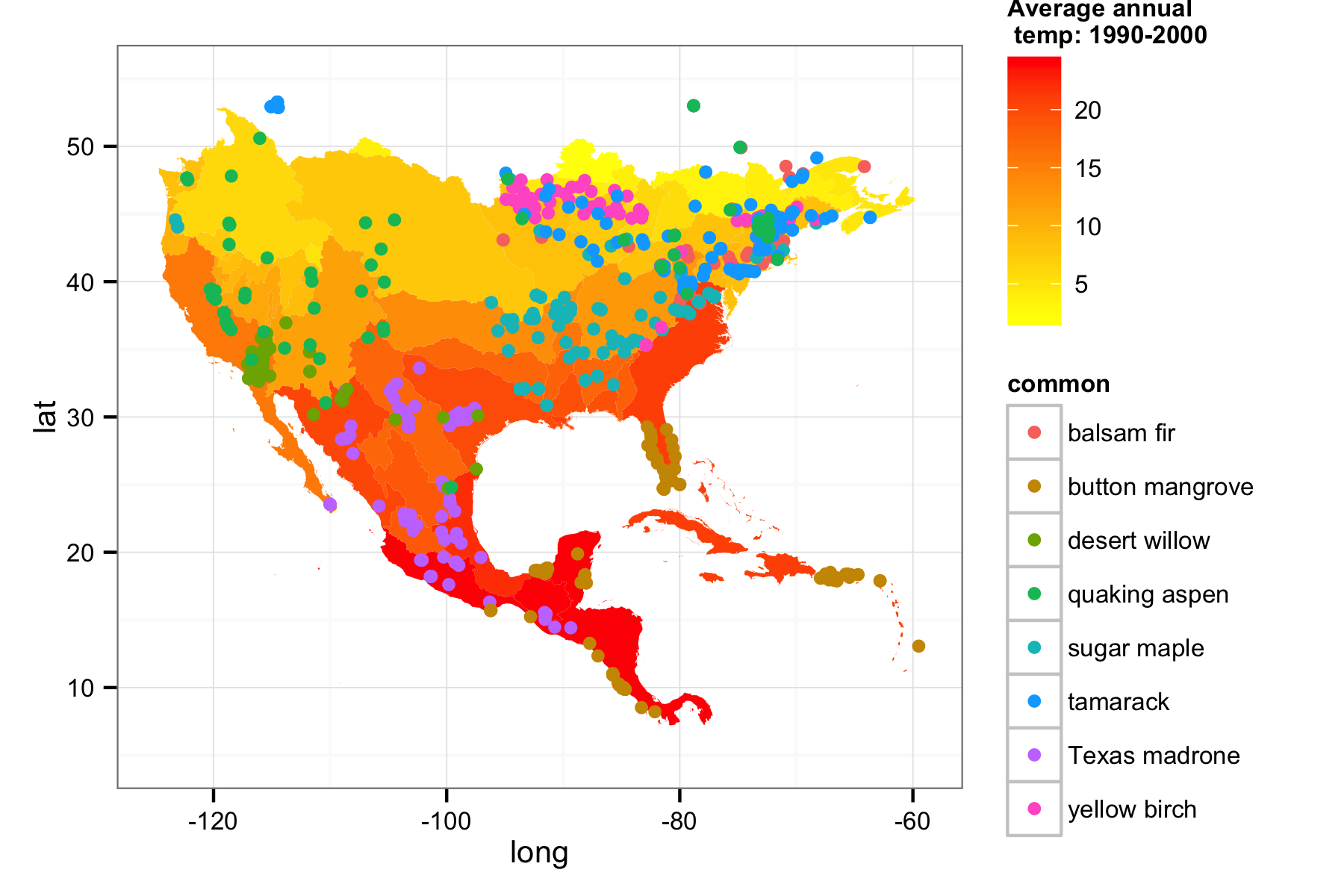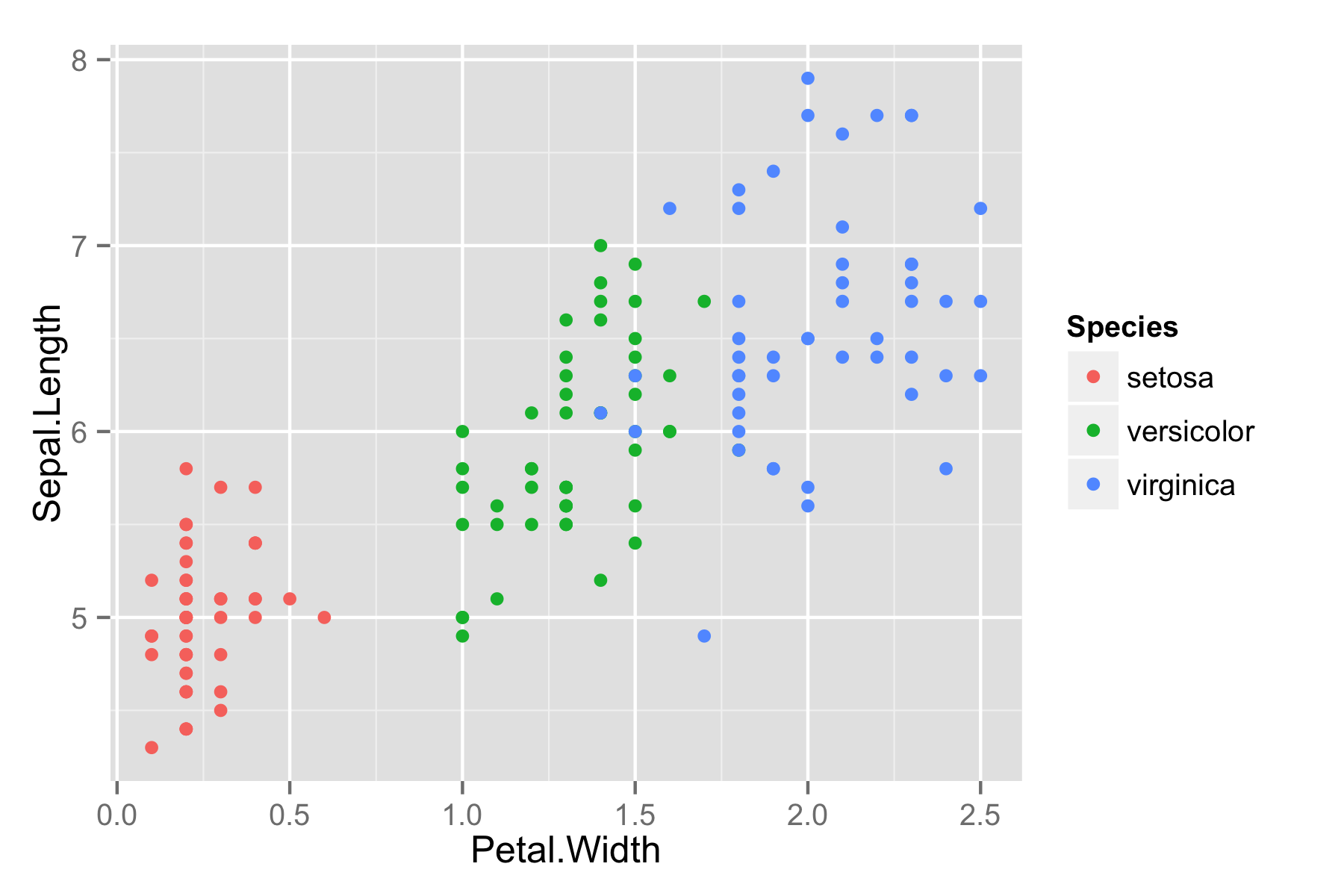The Open Tree of Life project aims to synthesize our combined knowledge of how organisms relate to each other, and make the results available to anyone who wants to use them. At present, the project contains data from more than 4,000 published phylogenies, which combine with other data sources to make a tree that covers 2.5 million species.
rOpenSci - open tools for open science
In the last 12 months we traveled all over the world delivering talks and hands on workshops at various conferences and universities. This was a great opportunity for us to raise awareness for the project and get more of you involved as contributors and collaborators. As we scale the project to the next level, we need your help in spreading the message. Today we would like to officially announce the rOpenSci Ambassadors program.
UPDATE: Use the new discussion forum at https://discuss.ropensci.org/ 🔗Community Community is at the heart of rOpenSci. We couldn’t have accomplished most of our work without help from various contributors and users. Most of our discussions with the broader community over the past year have been through twitter or one-on-one conversations.
We’re delighted to be sponsoring the upcoming Open Science Codefest in Santa Barbara, California, alongside RENCI, NCEAS, NSF, DataONE, and Mozilla Science Lab. The Open Science Codefest’s goal is to gather researchers from across ecology, biodiversity science, and other earth and environmental sciences with programmer types to collaborate on coding projects.
We just released v0.2 of rnoaa. For details on the update, see the release notes. What follows are some notes on the more important changes.
We’re delighted to announce that we have received additional funding from the Sloan Foundation to continue and expand our efforts from the past year. We’re grateful for the overwhelming support from the community, especially through engagement at various events we organized and attended this past year.
Science is reportedly in the middle of a reproducibility crisis. Reproducibility seems laudable and is frequently called for (e.g., nature and science). In general the argument is that research that can be independently reproduced is more reliable than research that cannot be independently reproduced.
We just released v0.3 of taxize. For details on the update, see the release notes. 🔗Some new features New function iplant_resolve() to do name resolution using the iPlant name resolution service.
The rOpenSci project is a poster child for the fluid collaboration that has become increasingly common these days thanks to platforms like Twitter and GitHub. It has been really inspring to see open discussions take shape as rough ideas, which rapidly turn into prototype research software, all of which are now happening in the order of few days to weeks rather than months to years.

One of the goals of the rOpenSci is to facilitate interoperability between different data sources around web with our tools. We can achieve this by providing functionality within our packages that converts data coming down via web APIs in one format (often a provider specific schema) into a standard format. The new version of rWBclimate that we just posted to CRAN does just that.

Editor’s note: This is a guest post by Matt Sundquist from Plot.ly. Ggplotly and Plotly’s R API let you make ggplot2 plots, add py$ggplotly(), and make your plots interactive, online, and drawn with D3. Let’s make some. 1. Getting Started and Examples Here is Fisher’s iris data. library("ggplot2")ggiris <- qplot(Petal.Width, Sepal.Length, data = iris, color = Species)print(ggiris) Let’s make it in Plotly.